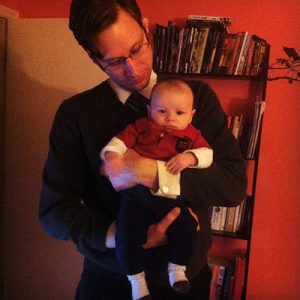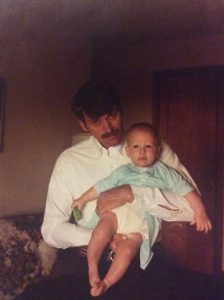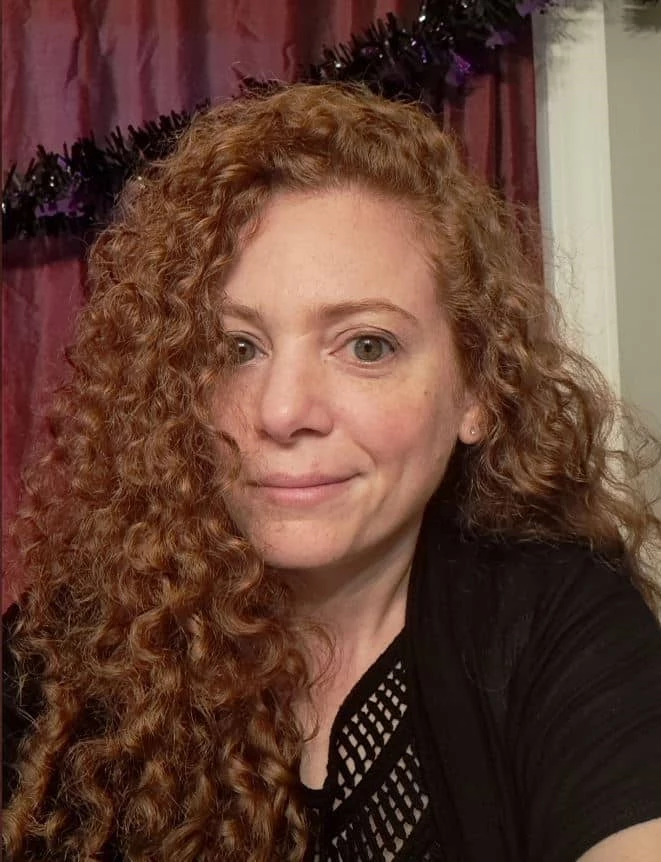
I’ve always loved weird fiction. But of course, that often leads to someone asking me “what makes something weird?” Of course, I answer with “you know, weird,” which may qualify as the least helpful response ever. Weird is things that shouldn’t work but do. Fantastical worlds that treat themselves as the way the world really does, or should work. Characters who assume an odder thing is right around the corner, because all of this is normal to them. Weird is about context: Grotesqueries can be beautiful here, death doesn’t have to mean you’ve stopped living, phrases can be stripped of meaning and rebuilt into something else. The Weird is a magnificent and often strangely comforting place to be. In a weird world, all of that works.
Changing gears, I want you to think about the word cultivate, and how it’s used in the English language. Gut reaction to that word is agriculture, right? We cultivate crops, we breed corn to be sweeter and less susceptible to disease. If you have a garden in your yard, you cultivate it by removing the weeds and adding the seeds and plants that you want. We cultivate a child’s imagination by exposing the child to crafts and artwork and music and anything else that might spark their creativity. No matter the context, cultivation is about adding elements you want and removing elements you don’t want. Cultivation can happen naturally, of course. So what cultivates us as a society? And if we were being cultivated, would we know it? How might we respond to being treated like a plant in a garden?
All of what I’ve just said adds up to Evan Dicken’s short story “How Lovely Is the Silence of Growing Things”: the weird elements are just the beginning. In this story, you’ll come across a hatched sun (wait, what? I don’t know how a sun hatches, but it sounds disturbing and awesome), poets who feed on your words and sentences, feral plants that eat everything in sight, a deadly green light, and dreams that should have scared me but were oddly comforting instead. This is one of the weirdest post-apocalyptic stories I’ve come across, and that is a high compliment. I know there were things in this story that were supposed to scare me, but to be honest the only thing that freaked me out was the prospect of eating spiders (and NO, I will NOT be watching the movie Arachnophobia in an attempt to cure my arachnophobia. In fact, let’s just never mention spiders again, okay?). Kate’s green-dreams weren’t nightmares for me, they were comforting and gloriously weird. In this story, the world is terrifying, deadly, and brilliantly weird.
But wait, there’s more, so much more to this story than just weird things. It’s about young people growing into who they’ll be one day, small acts of rebellion, protecting your loved ones, moving forward after disasters both tiny and planetary. This story is about observing how things grow and how we encourage one direction over another and playing with the context of that. Context is slippery, but growth never stops. I like to think about how the feral plants in this story change the creatures in their path, but as humans, don’t we change things in our path? Are we a feral plant that should be cultivated in a different direction?
I don’t have answers to any those questions, but I do know that when someone asks me for an excellent example of successful weird fiction, I can just send them the link to this story. I do hope you enjoy this story as much as I did. And if you’re already into weird fiction? Then you are in for a treat!
Evan was kind enough to let me pick his brain about how this story came to be, the unexpected anxieties of becoming a parent, how he jump-started his writing career, and more. When not writing, Evan Dicken studies old Japanese maps and crunches data for The Ohio State University. His fiction has appeared or is forthcoming in Flash Fiction Online, Pseudopod, Shock Totem, Unlikely Story, Analog, Beneath Ceaseless Skies, and Daily Science Fiction. You can learn more about him and his work at evandicken.com.
APEX MAGAZINE: I’m a little in love with the new-weird flavor of this story. Everything is weird and not-quite-right, but everything is strangely comforting as well. The sun has hatched (which sounds terrifying but awesome at the same time), and the new greenlight that bathes the Earth has caused all sorts of new growths and feral plant life. The greenlight changes everything it touches; it even changes our memories. Where did the idea for this story and the concept of greenlight come from?
EVAN DICKEN: I’ve never really been very good at just sitting down and writing. I know a lot of authors who can just dive right in, but the empty page has always been daunting for me. Conversely, I’m not much good at outlining, either. I find I work best with a loose theme in mind, something to direct and inform the story.
A few years ago, I had the idea for a series of apocalyptic stories based (very loosely) on the four seasons. I thought it would be kind of fun to explore how the world might end in falling leaves, or snow, or growing things. The first story, “Saturday” (published in Shock Totem #9 and later in Pseudopod) came easy—but autumn has always been my favorite season.
The rest have taken quite a bit more time to percolate.
“How Lovely Is the Silence of Growing Things” is the second in the series. With Trump’s election, I’ve been thinking a lot about the end of the world—how ideas and movements grow beyond the designs of their creators; how biases can inform our experiences, our interpretations, even our memories. All this dovetailed nicely with the “spring” theme that had been rattling around the back of my head for years.
The Green Sun was also germane to the season. Midwestern winters are long and gray, often ending in storms, and, usually around late April, blinding sunlight. The end result came through a couple rounds of brainstorming. I often feel like there are people looking over my shoulder as I sketch out my story notes—stern, grade school librarian types, but without eyes or noses or ears—just wide, toothy mouths. After each iteration, they purse their lips, shake their heads, and say: “No good, make it weirder.”
In this case, the sun just needed to become what it was becoming and, as usual, the world had to change with it.
AM: Talk to me a little about Kate and Mel. Kate wasn’t around for much of Mel’s childhood, and it seems they are only now getting to know each other. How did you develop their characters? The story includes a lot of Kate’s memories of her mom. Why did you decide to include those memories?
ED: Last year I became a father, so children have been weighing pretty heavily on my mind. I had a lot of conflicting feelings about parenthood, most of which worked their way into my fiction. I didn’t really realize it until I looked back over the stories I wrote in 2016, but almost half of them are about parents and kids.
Honestly, being that transparent kind of weirds me out.
As far as Kate and Mel, I knew I wanted their relationship to be tenuous, their memories suspect. I’ve always felt that when you die, your life stops being your own. Anything you leave behind is suddenly up for interpretation, especially by the people who care about you the most. For some reason, one of my most common middle of the night oh god why am I awake and thinking about this terrible stuff anxieties was what my son would think of me if I died. What sort of patchwork person would he create from the memories of other people? Who would I become irrespective of who I actually was—or who I thought I was?
That was the seed of Kate, Mel, and Abby. Parents spend so much time and effort trying to shape their kids. I thought it would be fun to turn that around and have Mel’s imperfect interpretation shape Kate, just as I hoped Kate’s memories of her mother would echo the recapitulation that threaded the rest of the story. In keeping with that theme, I wanted their memories to be even further unmoored from reality, growing new experiences entirely.
AM: This is such a beautifully written story, and one of my favorite lines is, “It’s important to remember what parts of you are you and what parts are weeds.” We all have parts of us we don’t like, but you are the only one who gets to decide what is a weed in your own garden. There is this whole huge connection between Kate’s memories of her mom, Abby’s failed garden, and the feral garden the Earth has become (are humans the weeds?). Were there any parts of this story that were particularly challenging to write? How did you get past those parts?
ED: The most difficult parts of the story for me also revolved around parenthood. I lost my father to cancer, and it’s a sore spot that’s never really healed. I have lots of memories of him, but in talking with friends, family, and coworkers who knew him well, it’s always been fascinating to me how many different people my dad was (or has become in the years since his death). I tried to use that to inform the slipperiness of context and recollection in “How Lovely.”
And then there’s cancer itself: just a mess of cells who’ve decided to stop following the plan, growing, spreading, and, if unchecked, killing their host. I like to think the world of “How Lovely” is becoming something different, that it’s changing rather than dying. Sort of my way of snatching some shred of meaning back from cancer.
My father might be dead, but his memories are still growing in the people who loved him.
AM: As soon as the poets showed up, I wanted to know everything about them. Are they bats? Plants? Bat-plant-people? What in the hell are they?? And more importantly, how did you come up with them, and how did you decide what types of things they would be able to do?
ED: Bat-plant-people, definitely.
The poets are another outgrowth of my: “Weirder … No, WEIRDER!” writing process. They went through quite a few changes during various drafts, evolving from small, gray alien things into bat-plant-people made from broken syntax.
As a writer, I’m (unsurprisingly) enamored of language and the role of context and interpretive frameworks in human communication. I wanted the poets to be signs without signifiers, gobbling up language, stripping it of context, rearranging and reordering the words to fit their bizarre interpretation of reality. Again, it’s tying into the theme of constant, uncontrolled growth.
The poets are everything we’ve ever said that was ever taken out of context, misunderstood, misinterpreted, everything we wanted to take back but couldn’t. They’re also the audience, the reason why we keep talking even though our words stop belonging to us the moment they leave our lips (or fingers, as the case may be).
AM: Your writing career has taken off in the last two years; in 2016 alone you sold over a dozen short stories. Did something change in your life leading up to 2015 and 2016 that allowed you to write and sell so much short fiction?
ED: I’m very, very lucky to have a family that supports my habit, as well as a really great network of beta-readers and authorial role models—some of whom have even became friends after weathering my initial onslaught of stammering, sweaty-palmed fan service.
The biggest change was on the production side. One of my primary motivators is shame. In past years, I’ve resolved to write one new story a month, but the resolution always fizzled around February or so. In 2016, an author friend and I decided to swear a BLOOD PACT to write no less than one new piece of fiction a month. Although there was no blood (or oath swearing for that matter) just having one other person aware of the fact that I needed to complete a story was enough to provide the necessary motivation. It didn’t matter that my friend is one of the kindest people I’ve ever met and would never, ever, ever get on my case if I failed to produce the requisite bit of short fiction. Just the thought of letting him down filled me with such shame that I couldn’t not write.
As for the sales—I’ve been at this for a little over a decade. I can’t quite explain why 2016 was so great other than to say a lot of very kind, wise, and wonderful people took the time to comment on my stories, fix my rambling narratives, give insightful (and occasionally cutting) feedback on my characterization, and lend a kind word and a shoulder to cry on when the rejections piled up so high I couldn’t see the sun. Honestly, it should be their names under the author’s byline rather than mine.
AM: You’ve studied psychology, history, biology, East Asian history, and you’ve spent time in Japan. How has your formal education and life experiences influenced your writing, if at all? As your horizons expanded, did your view towards the craft of writing change?
ED: Absolutely.
I think back to the person I was in my teens and twenties and I shudder. Not that I did anything particularly horrible—just your run-of-the-mill litany of stupidities. Again, a lot of people worked very hard on me and I’m extremely grateful.
I’ve also been incredibly lucky to have a lot of opportunities—first and foremost being the ability to follow my interests (however circuitous) rather than my needs. I feel like one of the foremost tools in a writer’s bag of tricks is the ability to put yourself in someone else’s headspace (however imperfectly). I don’t claim any sort of real understanding in that regard, but being able to study other cultures, other histories, other interpretive frameworks has helped my writing a great deal, as has getting more comfortable in my own head. Again, a lot of this is due to a multitude of wonderful teachers, both in an academic setting and my life in general.
Also, having a background in (and love of) academic research doesn’t hurt when I’m digging for details to flesh out a setting or character backstory.
AM: Much of your short fiction has been published in ‘zines that angle toward horror and the weird, such as The Lovecraft eZine and Innsmouth magazine, among others. What draws you to that type of fiction?
ED: Apart from the cadre of faceless librarians looking over my shoulder?
I think it’s the fatalism of the genre. Try as I might I can’t help but be terrified by death, by inevitability, by the sneaking suspicion that when you strip away all humanity’s nested apologetics, nothing matters. I mean, there’s nothing I can do or say that won’t be eventually forgotten. Worse, I was so keen on this “living” thing that I decided I wanted to reproduce and bring some other little fellow (whom I love very much) into the world to live, die, and be eventually forgotten.
It’s that sort of existential silliness that keeps me up at night. So, really, reading and writing weird fiction (especially of the cosmic/apocalyptic variety) is a coping mechanism.
I should say that I do write more cheerful stories as well—fantasy, science fiction, whatever I’ve got ideas for.
AM: The list of your published short fiction is impressively long. Any plans for novellas or novels down the road?
ED: Funny you should mention that, I just finished a draft of my first novella a few weeks ago. It’s my attempt at a Young Adult Fantasy—a young woman’s coming-of-age set inside a giant living statue surrounded by the palaces of dead and broken gods. It’s making the rounds right now, but *meaningful stare* if you know any good editors or agents (or are editors or agents) interested in a weird, gritty YA Fantasy, I would very, very, very much like to steal a moment of your time.
As for novels, I’ve got one or two hidden away on my hard drive somewhere, but they’re clunky, awkward things, more intent than execution. Good practice for the novel I will write, someday.
AM: Thanks Evan!












